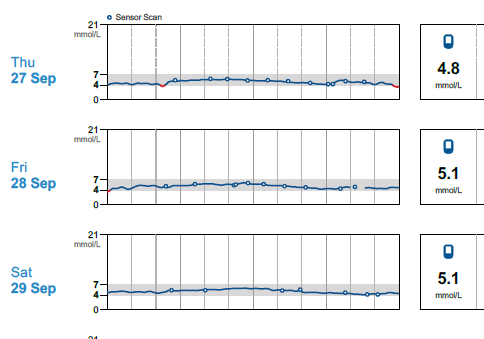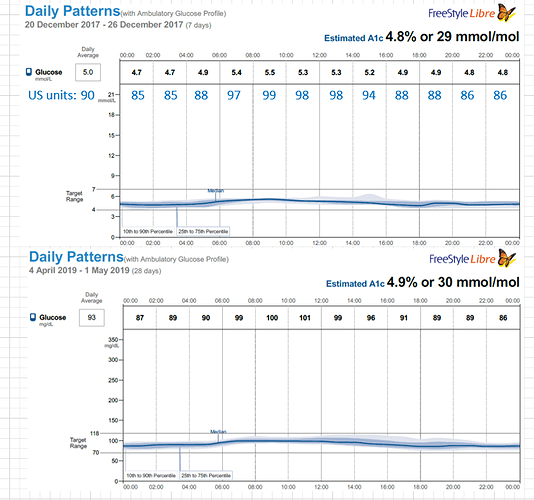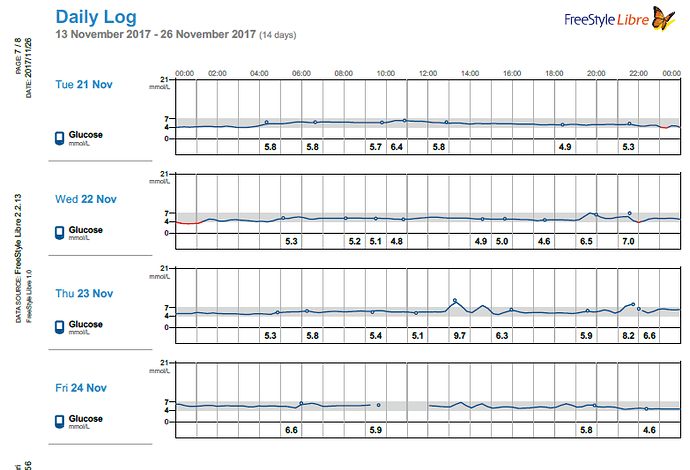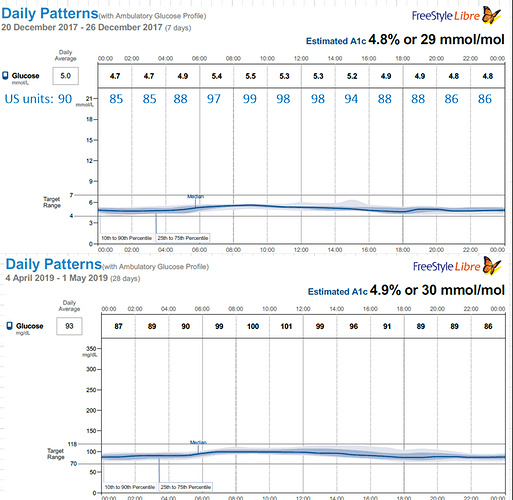What about data? While I’m not T2, I wore a CGM for over a year and never saw a blood sugar rise from protein. I ate 160+ grams of protein in single meals, no blood sugar rise. Over the course of 14 months, my average blood sugar over the course of a day was exactly the same.
On 11/21/17, I ate 162 grams of protein, the 5.7, 6.4, 5.8. You can see the next day, I had the same blood sugar, even though I was eating less protein per meal (it’s hard to eat 160+ grams of protein every meal, with low fat):
Unfortunately, this test was done right before Thanksgiving, so you can see higher carb meals the night before Thanksgiving (Wednesday, 22 Nov) and on Thanksgiving (Thursday, 3 Nov). 9.7 was Thanksgiving meal (healthy potatoes, homemade sourdough using Einkorn wheat).
After a while, I did not record anything, because my blood sugar was flat every day, as evidenced by the data shown above. If I showed you a day and asked you when I ate, you’d not be able to tell me. Some random days:

Within this context, it’s very difficult to say what protein is doing.
The one thing I did not do was try high fat, low protein for a week and high protein, low fat for a week to see if there was any difference in the curve. But that’s mainly because high fat is not sating for me, and I gave up eating high fat.
But I think your reliance on having people rebut you, when the evidence is all for high carb people, is mistaken. It’s like people who complain about certain metrics being off in people who are keto or carnivore – no one has ever tested this group of people to any extent. We don’t know what “normal” is.
And I’m not here to “rebut” anything, as I’ve tested myself enough to know that (1) I like and feel best and lose weight while eating higher protein, lower fat, and (2) I do not get sated eating higher fat and can easily gain weight doing so. Butter, for instance – I can eat as much of that as you want me to eat and not get sated.
So, regardless of the effect of protein (for ME, maybe not anyone else), I’m continuing to eat higher protein, lower fat.




